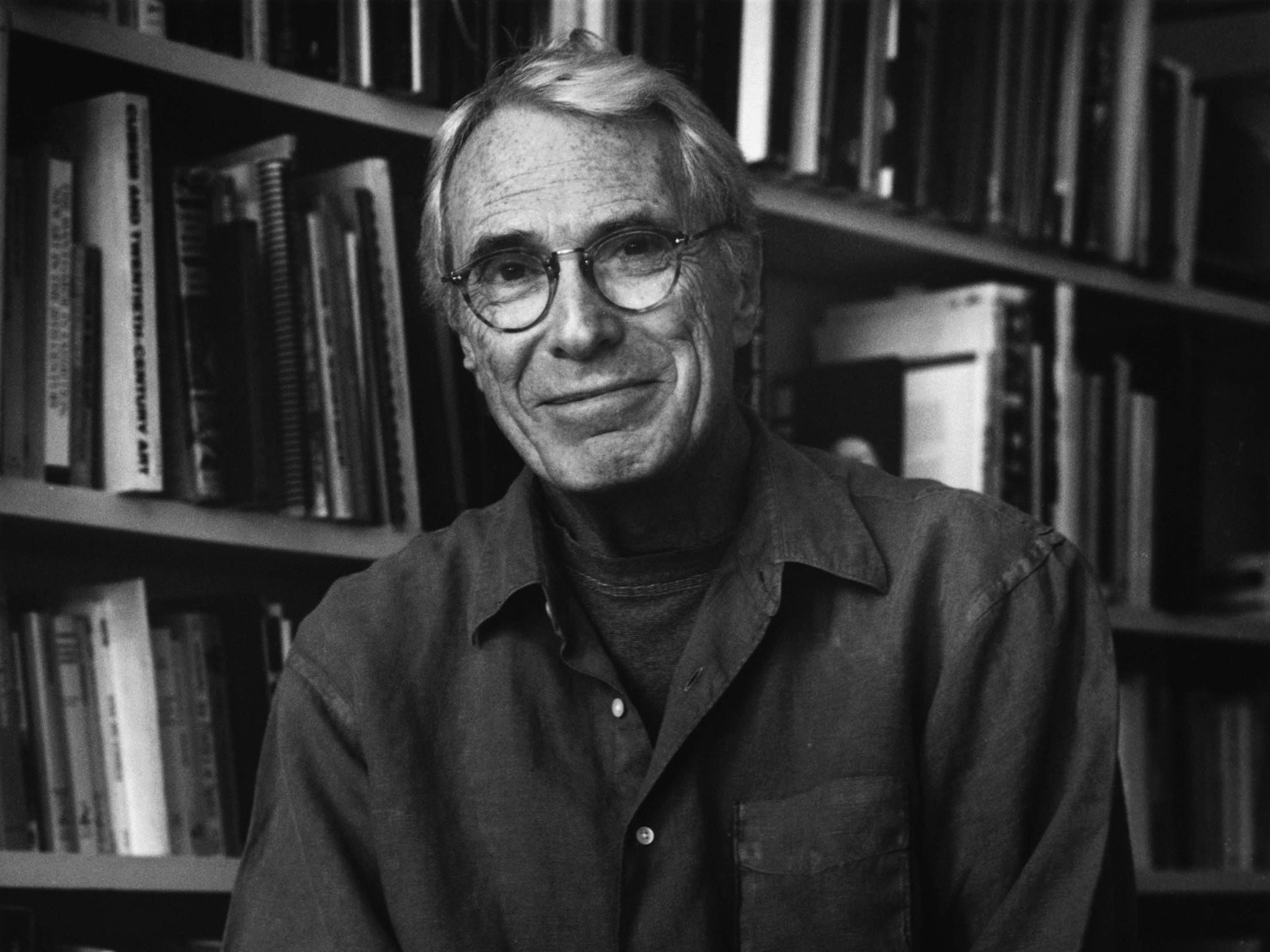Mark Strand: Writer of melancholic verse who became US Poet Laureate and won a Pulitzer Prize for 'Blizzard of One'

Mark Strand was a Pulitzer Prize winner and former US poet laureate widely praised for his concentrated, elegiac verse, whose works were translated into more than 30 languages.
A distinctive presence even at the end of his life, with his lean build, white hair and round glasses, Strand received numerous honours, including the Pulitzer in 1999 for his collection Blizzard of One and a gold medal from the American Academy of Arts and Letters. He was appointed poet laureate for 1990-91, although he did not count his time in Washington among his great achievements.
“It’s too close to the government. It’s too official. I don’t believe that poetry should be official,” he said in 2011.
Author of more than a dozen books of poetry and several works of prose, Strand was haunted by absence, loss and the passage of time from the beginning of his career, sometimes peering just beyond the contents of the page and wondering what, if anything, was out there. Some of his most famous lines appear in “Keeping Things Whole”, a poem from Sleeping with One Eye Open, his 1964 debut:
In a field
I am the absence
of field.
This is
always the case.
Wherever I am
I am what is missing.
Strand also wrote children’s books and art criticism, helped edit several poetry anthologies and translated the Spanish poet Rafael Alberti. He was a committed doubter, even about poetry. He went through occasional periods when he stopped writing verse and once quarrelled with his publisher, Alfred A Knopf, because he considered his 2012 collection, Almost Invisible, to be prose, not poetry.
He was born in Prince Edward Island in Canada, his mother a painter, his father a salesman whose work led to the family living in many locales, from Peru to Cleveland. Strand thought of himself first as an artist, and would dismiss his adolescent poetry as “feverish attempts to put ‘my feelings’ on paper, and little more.”
He majored in art at Yale University, but felt “stifled” and by graduate school had decided he was better suited for writing, with Philip Larkin and Thomas Hardy among those he was reading. He received a master’s degree from the University of Iowa’s prestigious Writers’ Workshop.
The most profound absence in his work was that of God, his atheism passed down to him from his father, who had terrified his young son with stories of heretics burned at the stake. In “Poem After the Last Seven Words”, from the 2006 collection, Man and Camel, Strand imagined how it felt “To open the dictionary of the Beyond and discover what one suspected, that the only word in it is nothing.”
“I haven’t met God and I haven’t been to heaven, so I’m sceptical,” he said. “Nobody’s come back to me to tell me they’re having a great time in heaven and that they’ve seen God, although there are a lot of people claiming that God is telling them what to do... Maybe they’re getting secret emails.”
Mark Strand, poet: born Summerside, Prince Edward Island, Canada 11 April 1934; died Brooklyn, New York 29 November 2014.
Join our commenting forum
Join thought-provoking conversations, follow other Independent readers and see their replies
Comments